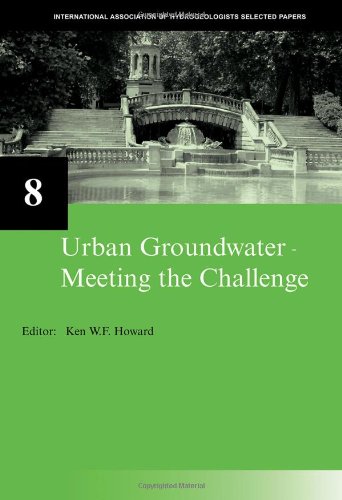

Most ebook files are in PDF format, so you can easily read them using various software such as Foxit Reader or directly on the Google Chrome browser.
Some ebook files are released by publishers in other formats such as .awz, .mobi, .epub, .fb2, etc. You may need to install specific software to read these formats on mobile/PC, such as Calibre.
Please read the tutorial at this link: https://ebookbell.com/faq
We offer FREE conversion to the popular formats you request; however, this may take some time. Therefore, right after payment, please email us, and we will try to provide the service as quickly as possible.
For some exceptional file formats or broken links (if any), please refrain from opening any disputes. Instead, email us first, and we will try to assist within a maximum of 6 hours.
EbookBell Team

4.0
86 reviewsDuring the past three decades, urban groundwater has emerged as one of the world’s most pressing issues. Explosive population growth, most prevalent in cities, has placed an inordinate demand on groundwater supply, prompting concerns for its long-term sustainability at a time when the quality of available groundwater resources is being increasingly degraded by anthropogenic activity. Cities less reliant on groundwater for potable supply are equally obliged to manage subsurface water with cautious respect since rising groundwater levels can generate a myriad of problems such as unstable land slopes, flooded basements, tunnels and electrical utilities, and the release of polluted water to urban wetlands, springs and streams.
Challenges in Urban Groundwater is premised on a growing recognition that most urban groundwater problems are not uniquely associated with any particular region or hydrogeological environment, and much can be learned by understanding the successes and failures of others. It showcases the best urban groundwater papers presented at the International Geological Congress held in Florence, Italy in 2004, and is supplemented by contributions solicited from other world experts active in urban groundwater research. Topics covered range from the urban water balance and rising groundwater levels to groundwater contamination and the role of aquifer modelling.